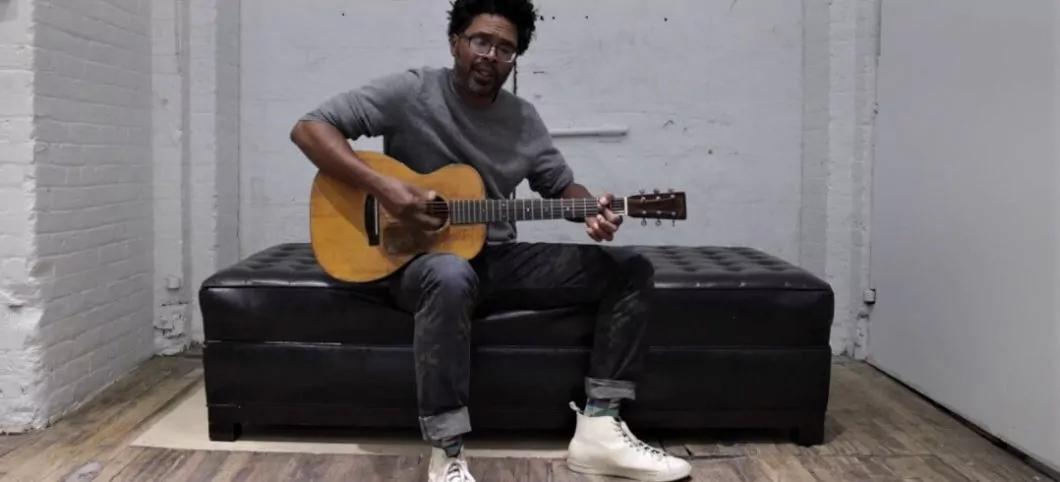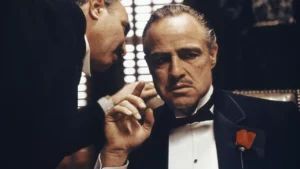
Osei Essed is a multi-platform artist, performing and writing for screen and stage. Recent film composition credits include the award-winning films Always in Season (2019 Sundance Special Jury Award), Period. End of Sentence (2019 Academy Award winner), TOWER (2018 Emmy winner) and Jim: The James Foley Story (2016 Emmy Winner). Essed performs with the Brooklyn-based bands The Woes and Big Hands Rhythm and Blues Band. We Talked to him regarding his process of creating the score for Amend: The Fight for America.
Hi Osei, I am Hardik Agrawal from The Movie Culture. How are you doing today?
Osei Essed: Pretty good, dude. It’s earlier here than it is over there. So, you know, we’re just getting the day started here.
Q. So I just watched Amend. It is such an important watch for everyone, everywhere. It’s really informative but in a way which which is inspiring. It also makes one aware about all the stuff the community had to face in all these 153 years. Did you feel more weight or responsibility over your shoulders, while creating the score for something like this, due to the sheer relevance and the cruciality of the subject matter?
Osei Essed: Very much. So you know, I’m a first generation immigrant. So aside from being a black person living in the United States, and being in an interracial marriage, there’s just so many ways where this story intersects with my own. And then for places where it doesn’t exactly intersect with my own, it’s still very much relevant, it’s because it’s the larger society in which we live. So I think a lot of the storytelling and musical storytelling had to do what the rest of it was doing, you know, in terms of the way that the staged readings were put together, and the animation, it was already inspiring, before I got there. So I had to make sure that my part of the storytelling could at least live up to that.
Q. So obviously, it tells a story, which spans 153 years, from the 19th century when it all started. And for a show, which looks at each time period, so deeply, what was your approach towards scoring the ever changing cultures and the revolutions that took place in America during the entire span of time?
Osei Essed: So I tried to give a nod to place and time while at the same time, not really making it all about place and time. I tried to make sure that there was a universal feeling through the score. So from the first episode through sixth episode, all the music would be connected and could speak to each other, while at the same time allowing it to grow and to help tell certain parts of the story there. You know, I use that at one point. During the Episode Five I was using mariachi horns, but not in a way that was so far outside of the rest of the score that I felt that it was inappropriate.
Q. So I was also curious as to how you got involved in this particular project? Were you the one who approached the creators? Or was it the other way around?
Osei Essed: I was approached by one of the producers.
Q. This was Hosted and Produced by Will Smith. So did you get a chance to interact with him about the score or some other aspects of the show?
Osei Essed: Yeah, we had strong feelings about what kind of music there should be in terms of at least the kind of energy that it brought in and in terms of how it would feel, to listen to it. He didn’t tell me what to do so much as give me a sense of direction and his hopes for it. Many of the other folks who worked on this series, everyone had a stake and felt like, the music was going to be a big part of how this the story came together. So yeah.
Q. So obviously, the score is also inspired by so many different pop culture hits that were that were released throughout the centuries. What were some of your favorite songs in the time period that made their way into the soundtrack of Amend?
Osei Essed: Oh, boy, that’s a tough one to ask. I think ‘This land is your land’ is probably the one that really sticks out, you know. There are a few iterations of it throughout the series, and each one is as good as the last. So that’s probably the one for me.
Q. I read that described the score of Amend as ‘Modern minimalistic meets Orchestral American’. Would I be right in assuming that the modern minimalistic relates with the struggles that took place in the more later periods like the 20th and 21st century, and the orchestral Americana sort of relates to the more older 19th century theme when the 14th amendment was actually put into the American Constitution?
Osei Essed: The way I really imagined those two ideas coming together, during my writing, initially, before I was a film composer was in bands. And those were actually roots, Americana bands. Even though I’m a first generation immigrant, I grew up loving cowboy music, movies, and cowboy songs. So that really steered me into American folk music eventually. And a lot of my early sort of musical sensibilities come from there, after of course, my punk rock youth, and putting that sort of thinking about minimalist sort of folk music together with American sort of orchestral music and American minimalism, seems like a natural fit. Again, if I felt if I was too expansive, or the score became too broke, it would not only get in the way, but it would set too much of a time period. I wanted very much for the score to be able to move through periods without feeling tethered to one in particular. And I think the only way to really do that is to reduce it to its basic elements, and then push up all of the things that make it feel special in that moment.
Q. So going back to some of your previous work, I found out that you had recreated the work of Paul Robson, who was a really influential artist and a civil rights activist of his time. Was that an inspiration for you while creating the score for Amend because of how similar the subject is, and the people that the show focuses on are?
Osei Essed: If not an inspiration, it was at the very, very least a huge influence in how I see sort of creating this kind of American music that is distinct and reinterpreted after the fact.
Q. So finally, like diverting from Amend a bit, your past work is mostly based around documentaries, like ‘Finders Keepers’ and ‘Period: End of Sentence’. Period is actually based on the unfortunately prevalent issue right here in India. But I was surprised by the sense of hope that you instilled with your music, whether it is for Period or for Amend. Do you always root for that sense of joviality, regardless of the subject matter?
Osei Essed: I think so many of the films that I’m asked to work on deal with very heavy topics and difficult to talk about subjects. And so, you know, we have to help raise that up as composers if we can. As storytellers I think it’s important to find the light. And to make sure that when we’re pointing, we’re pointing a way forward, rather than, you know, staying mired in the tragedies that are every day.
Thank you so much for, for coming to the interview. And congratulations for Amend. It’s truly breathtaking what you and the creators have done with it. I wish you all the best for all your future endeavors.
Osei Essed: Thank you so much for having me.
The Movie Culture Synopsis
Amend: The Fight For America is streaming on Netflix and it’s truly impactful and iconic in each and every frame.



